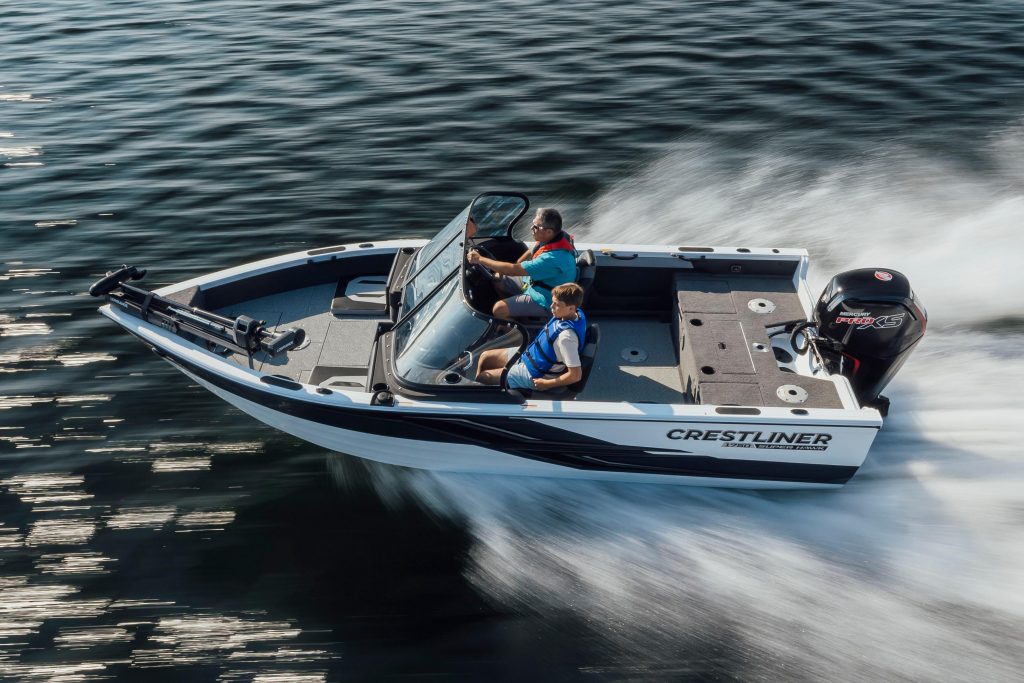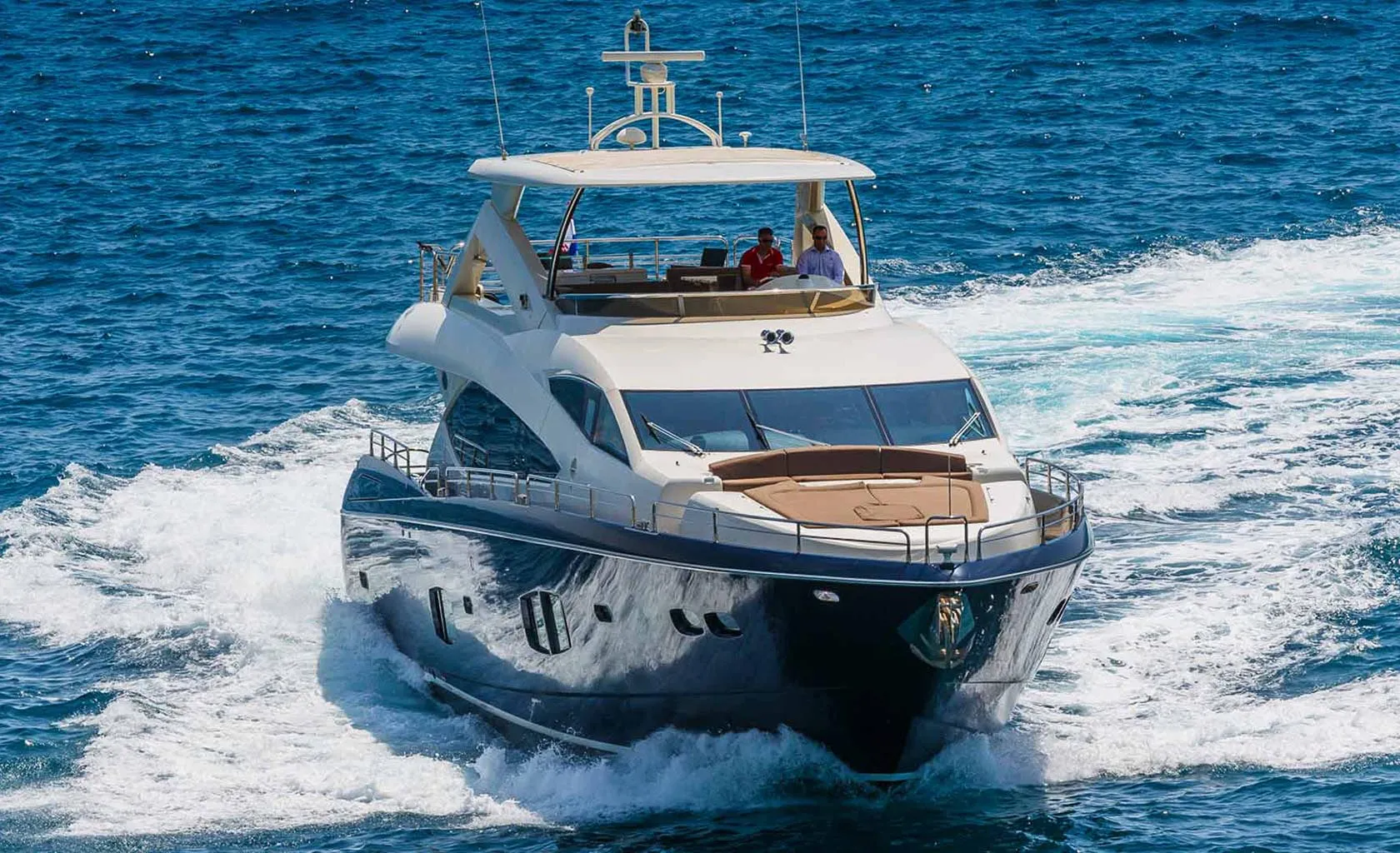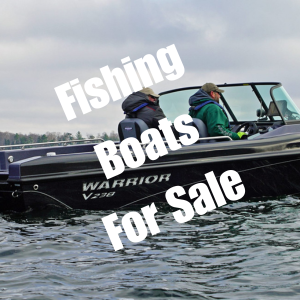How Much is a Boat: Essential Factors and Pricing Guide
Boat ownership can be a rewarding experience for those who love the water and the freedom it offers.
The cost of a boat varies greatly based on factors such as the type of boat, its size, materials used, and additional features.

Knowing the range of price associated with each type of boat, as well as necessary additional costs, is crucial when considering whether to buy a new or used boat.
Determining a boat's value requires examining a variety of factors that affect the total cost. These include the make, model, and necessary upgrades and enhancements.
Additional costs of boat ownership can include maintenance, storage, insurance, taxes, and fuel.
Finding the right boat at the right price is a key step in the boat buying process.
Considering factors that influence boat pricing, types and costs associated with boat ownership and selling insights can be helpful when deciding upon the best boat for your budget and needs.

Key Takeaways
- Boat prices vary depending on factors like type, size, and features.
- Additional costs of ownership include maintenance, storage, and insurance.
- Careful research and consideration of factors can help buyers find the right boat at the right price.
Determining Boat Value
When it comes to determining the value of a boat, several factors must be taken into consideration, such as the boat's make, model, and condition.
Utilizing reliable pricing tools and evaluating the role of boat dealers can help in obtaining an accurate estimation of a boat's worth.
Utilizing Pricing Tools
There are several online tools available that offer reliable boat pricing information.
For example, NADA Guides offer comprehensive data on various boat models and their current market value.
Another useful tool is the Boat Price Checker tool on Boat Trader, which helps determine the price range of listed boats.
The ABOS Marine Blue Book is another valuable resource for boat valuation, as it provides pricing information based on make, model, and year.
These pricing tools provide a firm foundation to start from when estimating a boat's value.

Influence of Make and Model
The make and model of a boat play a significant role in its value. For example, luxury yacht brands will generally be worth more than entry-level boats.
You can typically find the boat's value in pricing guides based on these factors:
- Make - The manufacturer of the boat (e.g., Yamaha, Sea-Doo)
- Model - The specific version of the boat (e.g., Yamaha VX Cruiser, Sea Ray SPX 190)
- Year - The production year of the boat
These factors help create a baseline for determining the value of the boat, but other considerations such as the boat's overall condition, added features, and market demand may also impact the final valuation.
The Role of Boat Dealers
Boat dealers can play a valuable role in determining a boat's value.
Their expertise and knowledge of the market can help guide the boat valuation process.
Visit a local dealer to get a professional's opinion or use a boat pricing tool to gather information on the pricing range for your specific boat make, model, and year.
Keep in mind that dealers may have an incentive to offer a lower price if they are interested in purchasing the boat themselves. Therefore, it's essential to do thorough research and consult multiple sources when determining the value of a boat.
Factors Affecting Boat Pricing
Location and Area Impact
Boat pricing can be significantly influenced by the location and area where the boat is being sold.
The local market, lifestyle, and availability of boating facilities can greatly impact the boat prices.
In areas with a stronger boating culture and a higher demand for boats, prices may be higher. Similarly, boats in coastal regions or near popular waterways may be more expensive due to higher demand.
Additionally, boat prices can differ based on the zip code, as taxes and fees vary.
Brand and Model Year
The brand and model year of a boat play a crucial role in determining its value.
Known brands with a reputation for quality and durability may have higher resale values.
As for the model year, newer boats with updated technologies and features can command higher prices.
However, well-maintained used boats can still retain significant value, especially if they are from reputable manufacturers.
Boat Condition and History
The condition and history of a boat are essential factors to consider when determining its price.
A well-maintained boat with a clean history and minimal wear and tear will typically hold more value than a neglected one.
Factors such as engine hours, service records, and any history of accidents or damage can all impact a boat's pricing.
A professional survey can offer insight into the boat's condition and reveal any potential issues that might affect its value.
Market Demand and Inventory Levels
Market demand and inventory levels can significantly influence boat pricing.
High demand for certain types or models of boats can drive prices up, while low demand or an abundance of available boats may lead to more competitive pricing.
Seasonal trends and fluctuations in the used boat market can also impact prices, as buyers may be more inclined to purchase during boating seasons.
Types of Boats and Price Range
Personal Watercraft
Personal watercrafts are smaller recreational boats commonly known as jet skis or wave runners. They are designed for one or two people and offer a fun and thrilling experience on the water.
The price range for personal watercraft varies depending on brand, model, and features.
Generally, the prices can start from around $5,000 for entry-level models and go up to $20,000 for high-end, performance models.
Sailboats and Yachts
Sailboats and yachts are a diverse category of boats, offering various sizes, amenities, and sailing experiences.
Sailboats can range from small, single-passenger vessels to large, luxury yachts. The price range for these boats will depend on the size and features.
- Small Sailboats: Prices for small sailboats such as dinghies and catamarans start from about $2,000 and can go up to $25,000.
- Mid-Size Sailboats: Boats like cruisers and racing sailboats typically fall within the $30,000 to $150,000 range.
- Large Sailboats and Yachts: Luxury cruising yachts and large sailboats can start from $250,000 and go up to several million dollars, depending on the level of luxury and customization.
Fishing and Sports Boats
Fishing and sports boats are popular for their versatility and practicality. These boats cater to various water activities, from fishing to wakeboarding and water skiing.
The price range for fishing and sports boats depends on the type, size, and additional equipment or features.
- Fishing Boats: Basic fishing boats like jon boats and skiffs can begin at $1,000, while more advanced options like bass boats or deep-sea fishing boats can range from $20,000 to over $100,000.
- Sports Boats: Inboard and outboard runabouts, ski boats, and wakeboarding boats have a price range of roughly $15,000 to over $100,000, depending on features and performance capabilities.
The highest price for some boat types like luxury yachts or high-performance personal watercrafts can reach several millions of dollars. It's essential to carefully consider your desired usage, budget, and preferences when choosing the right boat for you.
Additional Costs of Boat Ownership
Insurance and Taxes
Aside from the initial purchase price, boat ownership includes additional costs like insurance and taxes.
Boat insurance varies depending on factors such as boat size, type, and location.
On average, insurance for a small boat can range from $200 to $500 per year. Larger, more expensive boats may cost thousands per year to insure.
Also, don't forget to account for annual property taxes, which vary by state and the value of your boat.
A common method to calculate boat taxes is the property tax rate multiplied by the assessed value of the boat. For example:
| Boat Value | Local Tax Rate (%) | Annual Boat Tax |
|---|---|---|
| $10,000 | 1.5 | $150 |
| $20,000 | 1.5 | $300 |
Maintenance and Repair
Maintaining a boat is essential for its longevity and performance.
Routine maintenance, such as cleaning, changing engine oil, and inspecting the boat's electronics, helps prevent costly repairs.
Here are some common maintenance costs:
- Engine oil: $20 - $50 per change
- Antifreeze: $15 - $30 per gallon
- Cleaning supplies: $10 - $50 per bottle
On top of routine maintenance, boats may require occasional repairs. For instance, an outboard motor may need servicing, costing anywhere from $300 to $1,000.
Keep in mind that the more complex and larger the boat, the higher the maintenance costs will be.
Docking and Storage Fees
Docking your boat at a marina or a private dock is another ongoing expense.
Storage fees will depend on the boat's size and the location of the dock.
On average, dockage fees range from $10 to $25 per foot per month.
If you prefer to keep your boat on dry land or require indoor storage to protect it from harsh weather, you may expect to pay $50 per foot per month, as mentioned in this Discover Boating article.
Additionally, you might encounter launch fees at public ramps, which can vary from $5 to $15 per launch, as found on Boatsetter.
When calculating the cost of boat ownership, make sure to factor in these additional expenses for a more accurate estimate.
Buying and Selling Insights
Boat Buying Process
When searching for a boat, it's essential to understand the boat buying process.
One way to start is by researching boat prices on platforms such as BoatCrazy.com and BoatTrader.
Familiarize yourself with various boat makes and models that suit your needs.
It's crucial to inspect the boat's mechanical system, engine hours, and the overall condition, as these factors affect the used boat's value.
Aesthetic aspects, such as wood trim and interior, should also be considered when determining a boat's worth1.
Negotiating Boat Prices
Once you've found the boat that meets your needs, it's time to negotiate the price.
Armed with the knowledge of boat values, you'll have a clear idea of what to offer.
Factors like the boat's condition, engine hours, and overall market demand might provide room for negotiating the price2.
You can also consult NADA Guides to acquire a comprehensive understanding of the boat's pricing.
Useful boat negotiation tips:
- Research average prices for the boat model
- Assess the condition of the boat and any additional equipment
- Be prepared to walk away if the price is too high
Closing the Deal
The final step in the boat buying process is closing the deal.
Ensure that you have completed all the required paperwork, such as the bill of sale and transferring the title3.
Additionally, you should conduct a marine survey, especially for expensive boats, to avoid potential issues and hidden damages.
Remember that insurance companies might require a survey before insuring the boat4.
Additional Factors
Economic Indicators
In addition to the boat's type, size, and features, the overall cost of owning a boat can be impacted by prevailing economic conditions.
For example, during periods of economic growth, prices of boats may increase due to higher demand.
On the other hand, during economic downturns, prices may decrease as fewer people are interested in purchasing boats.
Inflation can also play a role in boat prices, as the cost of materials used to build boats and the overall consumer price index can affect the value of boats over time.
Interest Rates on Financing
Interest rates are another important factor to consider when purchasing a boat.
As with any large purchase, many people choose to finance a boat through a loan.
The interest rate on that loan can significantly impact the total cost of boat ownership.
Lower interest rates make financing more affordable, while higher rates can make owning a boat more expensive.
It's important to research and compare interest rates from different lenders before making a decision.
Additionally, boat loan terms usually vary from two to 15 years, so choose a term that best suits your financial situation.
Yacht Clubs and Marinas
The cost of maintaining and storing a boat can be heavily influenced by the yacht clubs and marinas where the boat will be moored, especially if the boat owner needs to rent a boat slip or storage space.
These fees can vary greatly depending on the location and the amenities offered by the yacht club or marina.
In addition to mooring fees, yacht clubs often charge membership fees, which usually include access to various club facilities.
If you plan to join a yacht club or use marina services, research the costs involved to have a clear understanding of the additional expenses associated with boat ownership.
Enhancements and Upgrades
When considering boat ownership, it's important to factor in potential enhancements and upgrades that might add value and functionality to your vessel.
In this section, we'll discuss two key areas: outboard motors and equipment, and trailers and transport options.
Outboard Motors and Equipment
Outboard motors can greatly impact your boat's performance and overall experience on the water.
Depending on the size and brand quality, a new 2-HP to 4-HP motor can range from $500 to $1,000.
For those needing more power, a new 10-HP motor starts at a minimum of $1,000, while a 20-HP motor starts around $2,000.
When considering upgrades, you may also explore enhancements in the following areas:
- Navigation systems: Install the latest GPS and depth finders to improve boating safety and efficiency.
- Fishing equipment: Consider adding rod holders, tackle storage, and live wells for avid anglers.
- Seating and upholstery: Upgrade to comfortable and water-resistant seating, improving the overall appearance and usability of your boat.
Trailers and Transport Options
A suitable trailer is essential to transport your boat safely and efficiently.
The cost of a new boat trailer varies depending on factors such as weight capacity, materials, and style.
For example, a basic aluminum boat trailer may cost a few thousand dollars, while more advanced trailers could range well above that.
Consider the following factors when choosing a trailer:
- Weight capacity: Ensure your trailer can support the weight of your boat, fuel, motor, and additional equipment.
- Bunks or rollers: Bunks provide more support, while rollers make loading and unloading easier. Choose the style that best suits your needs.
- Material: Trailers can be made from materials like steel, aluminum, or galvanized steel. Each material has its advantages and disadvantages in terms of durability, weight, and resistance to corrosion.
Future Considerations
Emerging Market Trends
In recent years, the boating industry has experienced significant changes, especially in terms of pricing. The market value of new boats has witnessed an upward trend.
Prices are expected to continue rising in the near future, attributed to factors such as worldwide supply issues, consolidations among equipment suppliers, and labor shortages. Specifically, new boat prices increased by 10% on average in 2022. Forecasts predict an additional 2-5% growth in 2023.
Popular boat brands, such as Yamaha, have also been impacted by these trends. Known for their high-quality boats, Yamaha continues to face supply shortages and waitlists extending into 2024, which further sustains high market prices.
Note: The linked websites may not provide accurate pricing information. Please contact the boat manufacturer or dealer for the most up-to-date pricing details.
Advancements in Boat Technology
As the market evolves, boat manufacturers are introducing advanced technology in their products, enhancing both performance and efficiency. These innovations not only provide a better boating experience but also contribute to the overall increase in boat costs.
Some notable advancements in boat technology are:
- Fuel Efficiency: Modern engine designs and efficient hull forms are leading to more fuel-efficient boats, reducing overall operational costs for owners.
- Connectivity: Integrated navigation, communication, and entertainment systems are transforming the boating experience by connecting users with their surroundings and providing important live data.
- Eco-Friendliness: An increasing focus on sustainability has led to the development of electric boats, hybrid boats, and the use of environmentally friendly materials in manufacturing.
Despite the higher initial costs, these technological advancements contribute to a better overall experience for both casual and professional boaters. As emerging trends and innovations continue to shape the industry, potential boat owners should keep these factors in mind when considering their purchase.
Frequently Asked Questions
What is the average price for a fishing boat?
The cost of a fishing boat can vary greatly depending on factors such as size, type, and features. On average, you can expect to pay between $10,000 and $75,000 for a new fishing boat.
What are the costs of boat ownership per month?
Monthly boat ownership costs can include loan payments, insurance, fuel, storage, and maintenance. These expenses can range from $200 to $1,000 per month, depending on factors such as boat size, usage, and location.
What is the cost of a small motor boat?
A small motor boat usually refers to a boat between 14 and 18 feet in length. The cost of such a boat can vary based on features and brand, but typically can range from $5,000 to $20,000.
Are there significant expenses associated with owning a boat?
Yes, boat ownership comes with recurring costs such as maintenance, repairs, fuel, and storage. Additionally, there may be occasional costs such as registration, insurance, taxes, and loan payments. It's essential to consider these expenses before purchasing a boat to ensure they fit within your budget.
What is the typical cost for a lake boat?
Lake boats, which can include pontoons, ski boats, or small cruisers, can vary in price depending on factors such as size, brand, and included features. Generally, the cost of a lake boat can range from $20,000 to $60,000 or more for new models.
How much should you budget when planning to purchase a big boat?
When planning to purchase a big boat (over 25 feet in length), budget for the initial cost as well as ongoing expenses such as storage, maintenance, and insurance.
The price of a big boat can range from $50,000 to several million dollars.
Make sure you have a clear understanding of all associated costs to ensure you can comfortably afford a boat of this size.
Charlie is Editor-in-Chief of Sea Magazine







